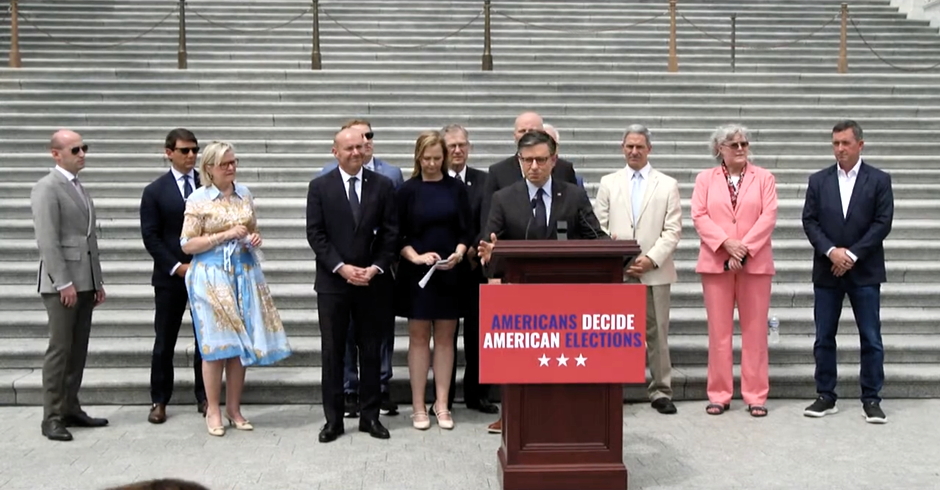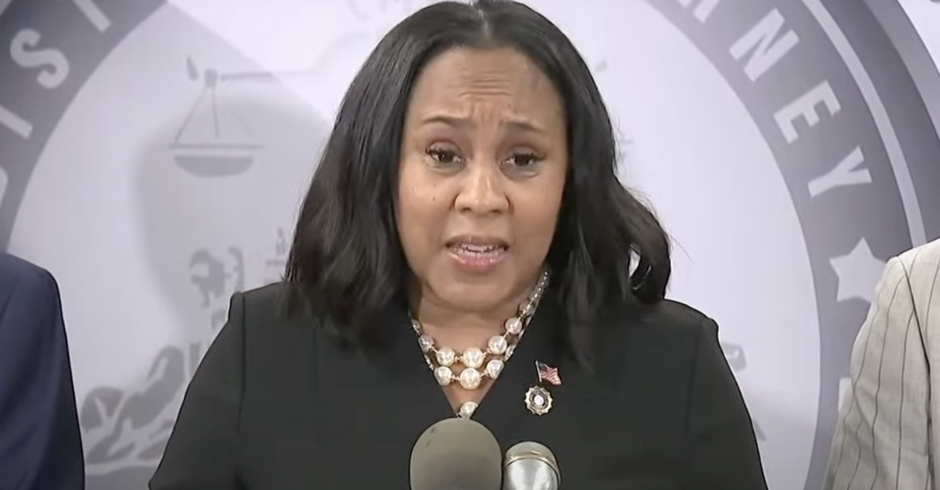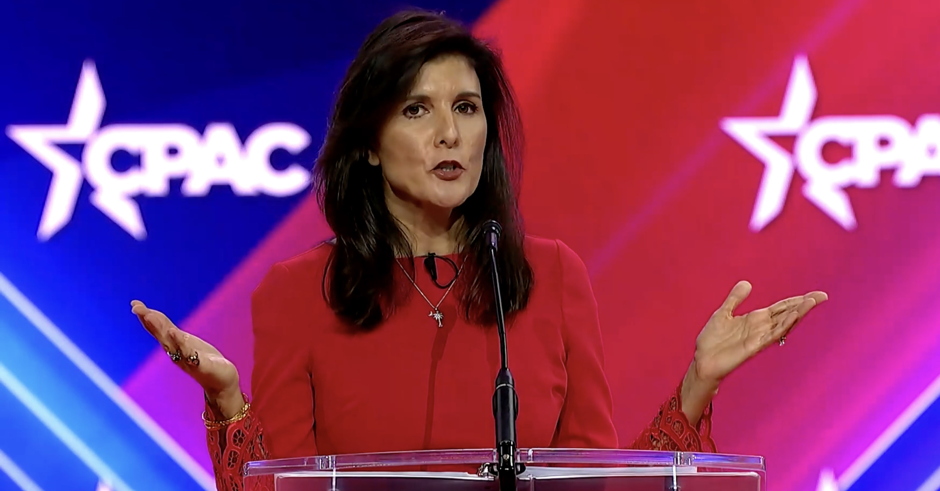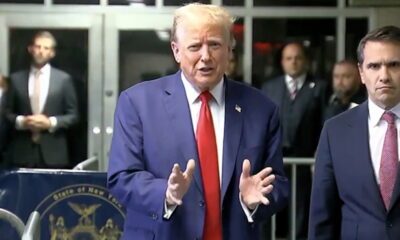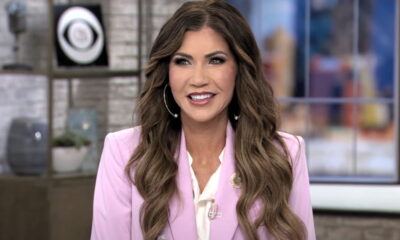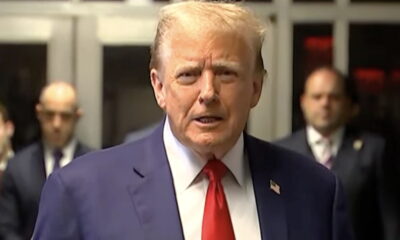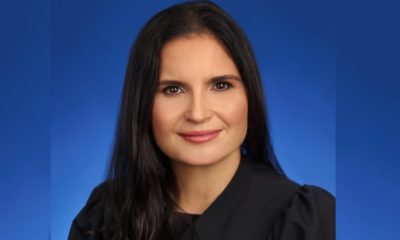Brother To Brother: A Letter To Herman Cain
Dear Herman Cain,
Â
I’m writing this letter to you because you need to be told off, and I’m the one to do it. You see, this letter has to come from a black gay man; if a white gay man writes you, you can dismiss him as a crazy white queen, or a faggot, or whatever. You can dismiss me as a faggot too, of course, but if I’m in the closet, or you don’t know that I’m gay, you might shake my hand and smile at me during a fundraiser, rally or at church; you might even call me brother, the way black men of my father’s generation always called each other brother, the way some black men still do today. Because the fact is, I am your brother, and I’m also your son. Which is why your betrayal feels particularly painful and devastating.
Â
I do not consider myself to be naïve, Mr. Cain. Given your political affiliations, I’m not surprised by your views on gays. But maybe I am foolish for expecting you to make a connection between the discrimination against blacks in this country, and that against lesbians, gays, bisexuals and transgender people. For you, that would be an intellectual connection, one that I assume a successful businessman with an impressive list of achievements such as yourself could make; for me it’s in my blood.
Â
I’m not asking for your sympathy, or pity, it’s just a fact: I’ve been called nigger and I’ve been called faggot. The words hurt equally. The strange irony of my life is that I’ve been called a faggot by niggers and been called a nigger by faggots. We need to see that we are all in the same boat; and that while we stand around arguing about who is more worthy, someone who considers us all to be worthless laughs all the way to the bank. Meanwhile, we step on each other, trying to gain a bit of extra footing on the mountain of “success†while crushing another’s soul.
Â
And since so much of American life is about being special, and winning the lottery one day — any lottery: the love lottery, the fame lottery, the political lottery – we stand in our isolated groups, waving our golden tickets, hoping we will be the ones picked for the big jackpot. And, of course, Mr. Cain, you want the biggest jackpot of all – you want to be president of the United States.
Â
I guess I should be pleased for the diversity. A Democratic black president followed by a popular black Republican nominee (at this writing you’re swiftly rising in the polls, running neck and neck with Rick Perry and Mitt Romney) should be a cause for celebration. But as the Democratic president turned out to be quite conservative himself, I’m not sure what to think anymore. I saw a clip of you on The View talking about homosexuality being a choice, and when someone on the show suggested that as president you planned to roll back “Don’t Ask, Don’t Tell,” you didn’t deny it. (You also acknowledged that you think abortion is wrong even in cases of rape or incest.)
Â
Despite the fact that I feel, Mr. Cain, your views are hopelessly backward, I’m curious: didn’t you get the memo that even when you hate gay people, you don’t say publicly that being gay is a choice? It’s hard enough for young gay people who are struggling with self-hate; you have to make them into masochists, who secretly crave it because they refuse to change. And threatening to reinstate “Don’t Ask, Don’t Tell†during your presidency, when it’s only been abolished for five minutes, just makes you seem vindictive and a kill-joy.
Â
Part of me, truthfully, doesn’t want to deal with you, Mr. Cain. I want to believe that you are on the Tea Party fringe, that your opinions really don’t matter that much, and that this is just more silly Republican cant. But the last time I thought that, we ended up with George W. Bush for eight years, which means his presidency wasn’t a fluke: someone — and I haven’t found him to confront him personally because no-one I know will admit to voting for Bush the first time — wanted him for four more years. And the fact is, Obama has shown that it is not inconceivable that Americans will vote for a black president. Which also means you have a good chance of winning.
Â
I felt weary when I saw you on The View, because I’m just so tired; tired of having to fight people like you, and your beliefs. It’s been less than three weeks since Jamey Rodemeyer killed himself; he’s been all over the news, so you must have heard of him. You must know how he was bullied at school; and yet you choose to stand with the bullies. You could have gone on The View, and said, “While I disagree politically with gay marriage, I won’t tolerate hate. We as a country should mourn that young man.†But you’re a politician, and that would have cost you votes.
Â
I don’t want to focus on you, Herman Cain, but the truth is that you, and people like you, are responsible for the Jamey Rodemeyers. And my fear is that with this latest appearance, there may be a few more like them tomorrow having watched you. It’s one thing to be in your forties, like me, and to feel worn down by the hate; at least I can build a wall against you, using concrete mixed from insane ex-boyfriends, recovering alcoholism, coming-out, rallies, therapy, activism, self-love, and basic gay-survival techniques. But how do you protect a child from a man who comes on the TV screen, a man who says that he wants to be president, and who tells her that she doesn’t exist, or shouldn’t. The child may be able to ignore him, and then again she may kill herself. And it’s not just the bullies in the hallways before class that our gay children are dodging, it’s bullies like you, and Michelle Bachmann, standing at podiums during debates, saying the same things that the 14-year-old bullies are saying outside their lockers, just more eloquently, and better dressed.
Â
Mr. Cain, I know you. I have never met you personally, but you are in my family. If one of your relatives dies, God forbid, I could bet money on what the funeral service might look like, what songs the choir will sing, what the preacher might say, and what food is going to be served at the reception. I’m a gay boy, and on holidays I watched my mother cook; which means, if you give me six hours and a shopping list, I can have you sitting down to a table of food (cooked from scratch) of collard greens, black-eyed peas, candied yams, cornbread, sliced turkey, and macaroni and cheese. (And not the kind with the orange-colored nuclear reactor powder-packet in the box, either; the real Sunday-after-church, hallelujah, come-to-Jesus Mac and Cheese that is as essential to black Southern gatherings as white rice is to a sushi chef.) I’ve been a vegetarian for almost ten years now, but I still miss the ham hocks, neckbones, fatback, and yes, occasionally, even though my generation doesn’t talk about them very much, chitterlings.
Â
I know that you were born in Tennessee, and grew up in Georgia. My father was also from the South. He and I had a lot of problems in our relationship growing up, but when I came out as a gay man, he accepted me, which I never expected. Whenever he called me, he always acknowledged my partner, and asked how he was. He even sent him a card once.
Â
One year, my father came to New York, stayed at the Plaza, and took us all to see Phantom of the Opera. When he arrived, I saw the room they had given him at the hotel; a tiny closet where you could barely open the front door without hitting the back window and which could only be affectionately referred to as the “sharecropper’s suite.†I marched right downstairs, proud to show my father for the first time what a New Yorker his son had become. His new room, at the same price, had two queen beds, two matching robes, and enough room to twirl around in a bodiced ballroom gown and not touch anything. I know, I tried. (Just kidding, Mr. Cain.) This man who I had always been afraid of, had allowed me to be a champion for him for once, and we sat down, my partner, my father, and I, and talked politics over Chinese food.
Â
You may not care about this, Mr. Cain, but four years ago, I was in London attending a conference on the work of James Baldwin. I was so excited about that conference, and many amazing topics came up, blacks and whites working together during the Civil Rights Movement; James Baldwin’s relationship with the man who he thought was his father, what the world had done to break that man and the pain between them; what it meant for James to travel to the South and experience Jim Crow having been born in Harlem, blocks from where I live now. I thought about James’ courage, and how race and sexuality played out in my life. What would I do when my father died: would I have the courage to go to the South as a black gay man in an interracial relationship?
Â
That evening, after the conference, I came home and received a phone call from my sister: my father was dead. And in just hours, I was on my way to the airport, with my white lover, on our way to South Carolina to plan my father’s funeral. The service would be in the church that my grandfather had founded and in which he had been a minister for decades before his retirement. Because of a disagreement between my mother and my paternal grandparents I hadn’t visited my grandparents often as a child, but growing up, people had always been accepting of me when we went to church, recognizing me as “Reverend Gordon’s grandson.†I had never come out as a gay man to my grandparents, or the entirely black congregation, and now I was bringing my white partner with me.
Â
It occurred to me that maybe I should ask him to stay home, but my father had accepted him in life, which meant, I believed, he would have wanted him there in death; and another part of me realized that not only would that make me a hypocrite, coming fresh from the conference and all that “panel–discussion†bravery that was now being tested, but also that there comes a point in a gay person’s life where staying in the closet, making the fearful choices, costs you so much more than just saying, “I’m not going backwards. I’ll deal with whatever happens.â€
Â
And everyone was lovely to us; no one humiliated us or made us feel unwelcome. I’d like to say that occurred in part because I was giving off the “Don’t fuck with me, fellas†microwaves, basically making it clear from my aura that if anyone tried anything homophobic, after “all the shit I’d done been through†coming out, I was more than prepared to handle that confrontation.
Â
But it was unnecessary to be defensive, in the end, because people were loving. When we entered the dining hall, before the wake, some women from the church had prepared a special meal for the family, and my partner got all the love that I did, right down to the hugs, and that macaroni and cheese, so good that sometimes, as a child, you prayed for someone to die, just for the food. And people asked my partner about his life, and where we lived. And while it may seem like a stereotype, they treated him like one of the family, because that’s how Southern black people usually are.
Â
The only time I felt weird and embarrassed was when my father’s fraternity brothers did a special presentation for him, and we sat in the front row during the wake. The men lined up and shook our hands. With all of them standing there in their white gloves, and with the heaviness of ceremony, grief and honor, I felt very gay, very much with a white man, and worried that I was deliberately humiliating my father at his funeral to get back at him for past grievances. But I had come to bury my father, and at close to forty, and refused to compartmentalize myself. To go to the South, to my father’s church, and be “Black,” and then come home and be “Gay,” having my partner greet me at the door with “So, how was the funeral?,” like you’d ask someone “How was the movie?†just didn’t seem right.
Â
Which is the kind of compartmentalizing I think you expect me to do as a black man, Mr. Cain. And I know that you have sat in the church pews and buried men like my father, men that you considered to be friends, so you know exactly what I’m talking about. And Mr. Cain, you do know a gay man. I don’t know who he is, and perhaps you don’t know either, but if you have brothers, uncles, sons, neighbors, a choir director at your church, colleagues at work, you love or work with a gay man, and some of those gay men are black. And while they may not have revealed themselves to you, and perhaps never will, they exist. And they are your family, and they count on you to be fair. And they are who you betray, every time you go on television and say you don’t believe they should be able to get married, or to serve their country without hiding who they are. Just like you betray your daughters all over the country, your sisters, your aunts, your friends, when you seek to deny them the right to choose what they want for their bodies, when you try to take away their agency, and call it being “Pro-Life.â€
Â
When a sympathetic Elizabeth Hasselbeck tried to let you off the hook by asking if you would separate your personal beliefs from how you would govern, you said, “I am going to make my decisions based upon the constitution of the United States of America. That’s what the president has a responsibility to do. Some of my personal feelings are not going to influence the decisions I have to make for all the people.†But how can I believe you, if you seek to reverse anti-discrimination legislation, and keep gay women and men in the closet, while they serve our country? How can I trust you’re going to protect us, when a gay soldier was booed at the September 22 Florida Republican debate after he spoke on “Don’t Ask, Don’t Tell,” and you did not defend him?
Â
Mr. Cain, when you recall your black history references, I feel pretty confident that you claim Dr. Martin Luther King, Jr. with great pride, but do you also claim Bayard Rustin, the black gay man who was the main political architect and organizer of the March on Washington in 1963? Do you appreciate that without Mr. Baldwin’s Nobody Knows My Name, and The Fire Next Time; without the love, and rage, and courage of his writing, and despite the epithets hurled his way like “Martin Luther Queen†by some; without black gay men like Rustin and Baldwin, we may not have had a Civil Rights movement? Some people blamed the riots in Watts on The Fire Next Time, and Baldwin had 1,427 pages in his FBI file. He wasn’t only speaking out for the black community, or the gay community, but for the human community, for us.
Â
I read in the newspaper that Rick Perry is in trouble now with a new controversy; a rock near his family’s hunting lodge had the word “Niggerhead†painted on it. The sign was eventually painted over but there is some contention as to when. On one site I visit, someone posted images taken from our country’s history, where “Niggerhead†was used on everyday household products, from oysters in a can to bath soap and golf tees. When you look at the depiction of black faces on these products, the bugged-out eyes, grotesque, twisted mouth and red lips, it evokes a horror in our past of lynching, of dehumanization and terror. You are of an age, Mr. Cain, where you may have seen some of these images on shelves in stores, in people’s homes. You are three years younger than my father, your father was a chauffeur, your mother a maid. Unlike me, you probably saw signs that said, “Colored Only†and had to wait in a separate line, or sit in a separate part of a movie theater. And I am grateful to your generation, and the people who fought for justice, that I have never had that experience. I’ve had some others, let’s be clear about that, but I have never in my life stared at a Jim Crow sign, or had to drink from a separate water fountain. And that is a major accomplishment of which we can all be proud.
Â
That’s why it matters to me that when history remembers us, remembers you, they won’t have to watch you on The View, or any place else, making a fool of yourself. Because ultimately it can only be a fool who would have had those experiences of bigotry, criticizing Perry by telling Fox News, “There isn’t a more vile, negative word than the ‘n word’, and for him to leave it there as long as they did is just plain insensitive to a lot of black people in this country†and then saying with your actions: “Yes, what was done to blacks was wrong and should never happen again….but those gay people over there, that’s a different story: you can do it to them.â€
Â
The fact that you are an associate pastor at your church means to some that you are a man of God. But to me a man of God is someone who defends everyone’s right to be who they are, as long as they aren’t hurting anyone else, someone who can’t exclude anyone on any basis. For others, this gives you a pass: you are able to discriminate on “moral†grounds. Maybe this worked once, but it won’t work any longer. We are hopefully reaching a time when it won’t be possible to justify oppression by saying, “But I’m black†(so my hate doesn’t really count), “But it’s my religion†(so I’m free to hate six days a week as long as I apologize to God on Sunday), “But it’s just a difference of political opinion†(you feel you deserve to be equal, my ‘opinion’ is that you’re scum), “But it’s a foreign culture with ways we don’t understand†(so female circumcision and honor killings hurt less when you speak the local dialect).â€
Â
Mr. Cain, I don’t have much hope that you’ll change your views. But I want you to know that I see exactly what you are doing. And while most black people have contempt for someone who sells out their people for money, privilege and status, what do you think you are doing when you throw me, a black gay man, under a bus, in order to gain a stronger political foothold? I just hope my gay kids, black and white, the ones around the country who might have heard your words, damaging their self-esteem, were in school that day and missed you on The View. But hey, you looked great in your suit and tie, and you sounded good. I’m sure you’re going to do well in the primaries, and being on the show probably got you lots of votes. That’s what it’s all about, right?
Â
I wish you the best.
Â
Brother.
Â
Â
Â
(image)
 Max Gordon is a writer and activist. He has been published in the anthologies Inside Separate Worlds: Life Stories of Young Blacks, Jews and Latinos (University of Michigan Press, 1991), Go the Way Your Blood Beats: An Anthology of African-American Lesbian and Gay Fiction (Henry Holt, 1996) and Mixed Messages: An Anthology of Literature to Benefit Hospice and Cancer Causes. His work has also appeared on openDemocracy, Democratic Underground and Truthout, in Z Magazine, Gay Times, Sapience, and other progressive on-line and print magazines in the U.S. and internationally.
Max Gordon is a writer and activist. He has been published in the anthologies Inside Separate Worlds: Life Stories of Young Blacks, Jews and Latinos (University of Michigan Press, 1991), Go the Way Your Blood Beats: An Anthology of African-American Lesbian and Gay Fiction (Henry Holt, 1996) and Mixed Messages: An Anthology of Literature to Benefit Hospice and Cancer Causes. His work has also appeared on openDemocracy, Democratic Underground and Truthout, in Z Magazine, Gay Times, Sapience, and other progressive on-line and print magazines in the U.S. and internationally.

Enjoy this piece?
… then let us make a small request. The New Civil Rights Movement depends on readers like you to meet our ongoing expenses and continue producing quality progressive journalism. Three Silicon Valley giants consume 70 percent of all online advertising dollars, so we need your help to continue doing what we do.
NCRM is independent. You won’t find mainstream media bias here. From unflinching coverage of religious extremism, to spotlighting efforts to roll back our rights, NCRM continues to speak truth to power. America needs independent voices like NCRM to be sure no one is forgotten.
Every reader contribution, whatever the amount, makes a tremendous difference. Help ensure NCRM remains independent long into the future. Support progressive journalism with a one-time contribution to NCRM, or click here to become a subscriber. Thank you. Click here to donate by check.
 |
